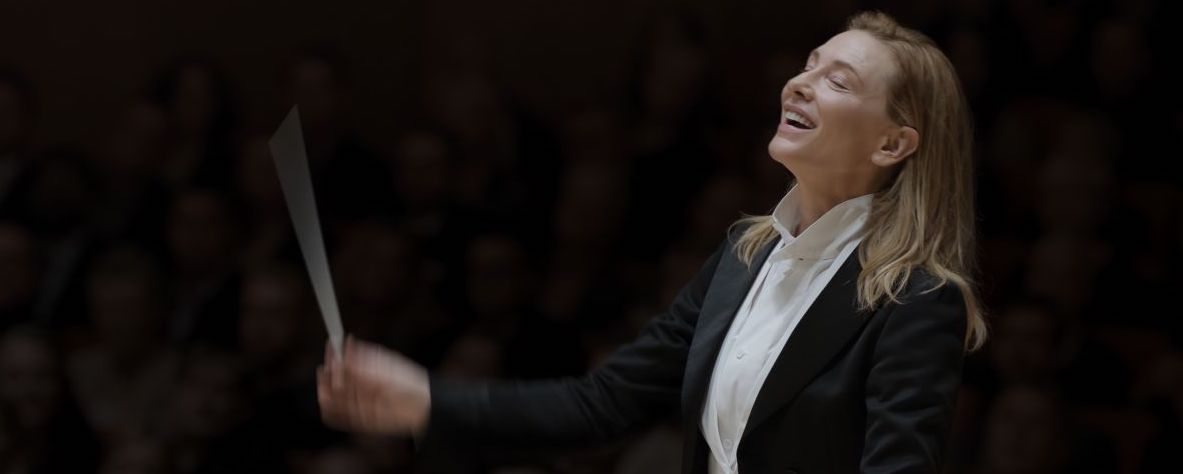Tár is available streaming online. Editor’s Note: It was just announced that two-time Oscar winner Cate Blanchett will add another accolade to her extensive list of accomplishments at the Palm Springs International Film Awards, where she is set to receive the Desert Palm achievement award for an actress for her lead performance in Tár.
Watching the film Tár, a question kept running through my head: Is the difference between causing harm or not dependent on whether the opportunity for it exists? Power being the opportunity in this movie about the fictional orchestra conductor Lydia Tár, played by Cate Blanchett.
Tár’s professional and maybe life status is measured in part by how revered are the orchestras she’s conducting, and her power is measured by the effect she has on the lives around her. Whether she’s benevolent or cruel is seemingly motivated by the quality of service her assistants, fellow conductors, and life partner offer her.
She is measuring time, not simply the passage of it but its pace. She runs, her footfalls marking time; she awakens from a nightmare to the sound of a metronome—is her life moving too fast?
There’s a magnetism to her position, and through that, she lures students into sexual relationships, then when their affair reaches its crescendo, there is an about face where Tár destroys them in a most resounding denouement. She’s finished with them.
In the film, an Emily Dickinson quote is uttered, “A soul selects its own society.”
A passage from the actual poem goes:
I’ve known her — from an ample nation —
Choose One —
Then — close the Valves of her attention —
Like Stone —
Tár’s wife (played by Nina Hoss), tells her she has had only one non-transactional relationship in her life, and that is with their daughter, Petra (played by Mila Bogojevic).
She is in a constant state of emotional negotiation, covering her tracks, demanding loyalty or love or excellence, restarting her life, and ultimately surviving. And we, the movie audience, are part of it. She lures us too. We want to know her and figure out this puzzle. We want to think how unlike us she is, though who knows what we would do with that kind of power, with those particular insecurities, with that much attention from those who want something from us.
The denouement, from Tár’s perspective, is not the end of the story for her students. In pain, they reclaim their power through both tragic and triumphant actions that stop their grand conductor’s momentum.
Great conductors, they create the music in front of us, but in truth, conductors make no sound at all.” ~ Michael Nowak
I wanted to get a real-life conductor’s perspective on the film, so I talked with Michael Nowak, music director for the Santa Maria Philharmonic and artistic director of Orchestra Novo.
Nowak (pronounced Novak) has been conducting and composing music since he graduated from college at 22 years old. He first conducted for the Dallas Symphony Orchestra and across the world, much of that time in Germany—Stuttgart and Frankfurt, but not Berlin, not yet.
For 31 years, he conducted the San Luis Obispo Symphony, which grew from a beautiful provincial group to one that played at Carnegie Hall in New York.
He said the world of music is filled with uncertainty because there is simply not enough room for everyone who wants to be a part of it.
“You’re worried about everything all the time—there’s no security,” Nowak said. “You don’t know the next time you’re going to work. And you’re aware that not a lot of people get to do it. What people don’t know about conductors is, they spend hundreds of hours in solitary confinement learning the music. Dreaming about it at night. Nightmares—where’s my tuxedo? Where’s my instrument?”
In life, we sometimes find the strength of our core value system tested and realize that lost opportunities can rebuild the foundation of those values—reconsidering those decisions we believed we would never make. And by the end of the film, it happens to Tár, who retreats to her past before moving forward into a world she had not envisioned for herself.
Her life is loud and demanding, fraught with high emotion, but as Nowak reminds us, “Great conductors, they create the music in front of us, but in truth, conductors make no sound at all.”
See the movie.
